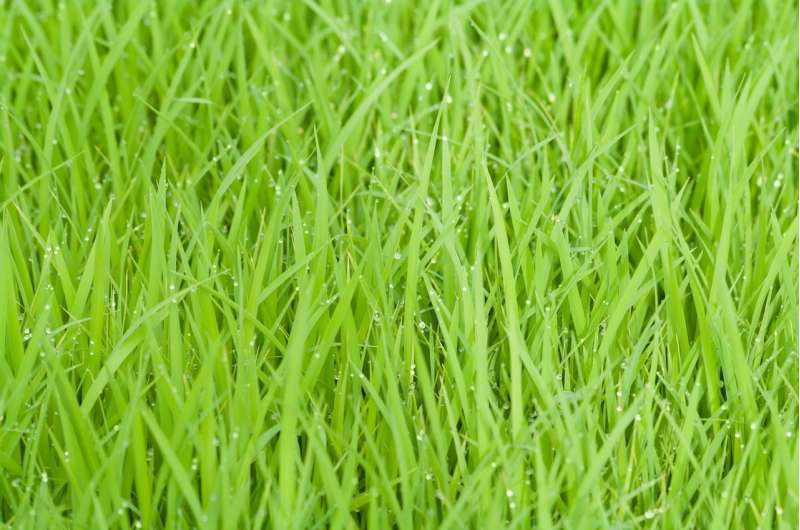Rapid effects of climate change on plants and their ecosystems

An international team of researchers led by two Villanova University biologists has found that climate change is dramatically altering terrestrial plant communities and their ecosystems at such a rapid pace that having a stable baseline from which to conduct experiments is becoming increasingly difficult.
In an article titled "Ambient Changes Exceed Treatment Effects on Plant Species," just published in the journal Global Change Biology, lead author Adam Langley, Ph.D. and co-author Samantha K. Chapman, Ph.D., both associate professors in Villanova's Department of Biology, together with a team of 16 researchers, documented findings that compared the abundance of ambient (growing in natural conditions) plants to plants in plots experimentally treated with elevated carbon dioxide, nutrients, water and warming to simulate future environmental changes.
The researchers compared the change in abundance of ambient plants to the treated ones. Using a database of long-term global change studies over a 30-year period, the team estimated trends in plant abundance for 791 plant species in ambient and treated plots across 16 long-term global change experiments, yielding 2,116 experiment-species-treatment combinations. The results were surprising.
For most species (57 per cent), according to the article, the magnitude of ambient change was greater than the magnitude of treatment effects—the opposite of the result expected by the researchers.
"A preponderance of evidence suggests that ongoing climate change is dramatically altering terrestrial plant communities," the article states.
The publication of the Global Change Biology article is particularly timely given the Oct. 7 release of The United Nation's Intergovernmental Panel on Climate Change (IPCC) report on climate change.
"The IPCC report states we are already halfway to the 1.5 degree C. warming threshold, above which we will have severe global effects," Langley said. "With current policies we are likely to surpass that threshold in the next 20 years."
This signals that even more dramatic changes in plant communities would be expected in the coming decades, Langley said. "Locally, many plant species we're used to will vanish, and new ones will take their places as plant populations migrate, adjust or go extinct. What this great shift means for our planet remains to be seen."
"One key take-away from the IPCC report that supports our findings is that changes across many ecosystems may be happening faster than we thought," Chapman agreed. "Plants are shifting under our feet as we're trying to predict the future."
The article points out that humans are altering many of the factors that control which plants succeed and which fail. For instance, ambient carbon dioxide concentration in the atmosphere is now about 50 per cent higher than it was in preindustrial times. By the end of this century the amount of carbon dioxide in the atmosphere could be triple the preindustrial level, according to Langley.
"Plants are the base of the food web and drive the carbon cycle, nutrient cycles and water cycles on which we rely," Langley said. "When the plant species change, everything else in the ecosystem may follow."
He added, "We are trying to simulate how the future earth will look with global change, but, climate change and nutrient pollution are changing ecosystems so fast it's tough to experiment on top of those changes. In the face of ongoing environmental change, our experiments may be like 'rearranging deck chairs on the Titanic'."
More information: Ambient changes exceed treatment effects on plant species abundance in global change experiments. Global Change Biology. doi.org/10.1111/gcb.14442
Journal information: Global Change Biology
Provided by Villanova University


















